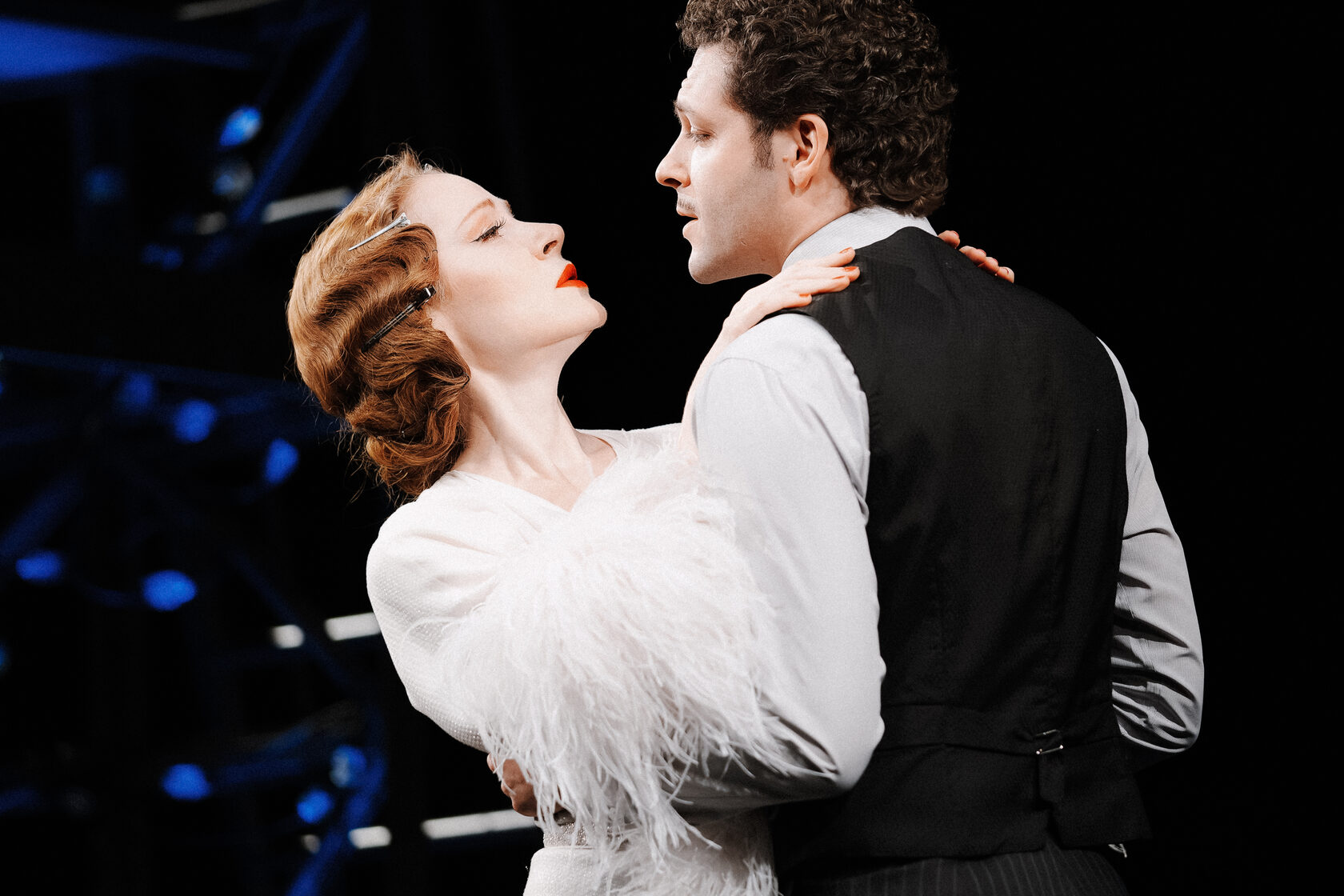According to the plot, the heroine comes to Paris from Soviet Russia with an assignment of national importance: to control the hapless emissaries who were ordered to sell the "legally confiscated" jewelry of Grand Duchess Svana. Ninochka is a devoted patriot who grew up on a collective farm on goat's milk and in the army on vodka. But in capitalist Paris, temptations await her at every turn, and acquaintance with Count Leon becomes a real test of revolutionary fortitude.
The fact that the performance was created based on a black-and-white film is reminiscent of some stylistic techniques: taking seats in the hall, the audience watches a screen with the inscription "iron curtain" on the stage, there are also credits with a mini-presentation of the actors in the finale, and a bear notifies the audience about the beginning of the action. An artist in disguise, of course.
The performance is decided in the form of a cabaret — a contrasting musical repertoire from Edith Piaf to the International and the song "My native country is Wide" by Isaac Dunaevsky musicians (piano and violin) perform right on stage. The young director Mikhail Rakhlin himself plays in Alexander Molochnikov's "19.14" production similar in genre, so he assembled a team of artists with knowledge of the matter.
The role of the angular emissary in kirza boots went to Svetlana Kolpakova, who is in demand in comedy productions and TV series — unlike Greta Garbo, for whom "Ninochka" became the first comedy. The Grand Duchess is played by Natalia Rogozhkina, who resembles a silent movie actress with pretentious gestures. Konstantin Kryukov (Leon) comes out as a courteous social dandy, able to find a way out of any delicate situation. The trio of emissaries performed by Armen Arushanyan, Alexander Usov and Rostislav Lavrentiev is also colorful. But the primacy in the comedy competition belongs to Svetlana Kolpakova.
The heart of the stern Nina will melt under the pressure of a charming Frenchman, she will change her boots and uniform for an elegant dress, but will retain her natural spontaneity: "We have high moral ideals, and you have a climate." In the barely planned confrontation of ideologies, love wins, and this Nina's decision does not look like a betrayal at all. A Bolshevik woman is first of all a woman, and then a party worker.
And the genre of romantic comedy was created for Hollywood happy endings, not for the truth of life. Here in the next Moscow Art Theater premiere, already on the Main stage — Alexander Molochnikov's play "The Bright Path. 1917" — the viewer will be invited to reflect on the fate of an entire nation, and not a single Ninochka.
Source: iz.ry
